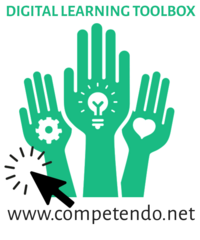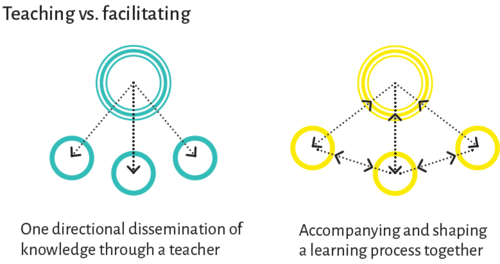From Competendo - Digital Toolbox
|
|
| Line 29: |
Line 29: |
| | <i class="fas fa-glasses"></i> [[Facilitation]]<br> | | <i class="fas fa-glasses"></i> [[Facilitation]]<br> |
| | <i class="fas fa-glasses"></i> [[Resource Orientation]]<br> | | <i class="fas fa-glasses"></i> [[Resource Orientation]]<br> |
| − | <i class="fas fa-glasses"></i> [[Self-Directed Learning]]<br> | + | <i class="fas fa-glasses"></i> [[Learning to Learn]]<br> |
| | <i class="fas fa-glasses"></i> [[Solution Orientation]]<br> | | <i class="fas fa-glasses"></i> [[Solution Orientation]]<br> |
| | <i class="fas fa-glasses"></i> [[Self-Development of Educators]]<br> | | <i class="fas fa-glasses"></i> [[Self-Development of Educators]]<br> |
Revision as of 11:12, 7 February 2023
A shift in the attitude (or position or mindset) of the teacher or educator plays an important role. Enabling rather than controlling, strengthening rather than emphasizing deficits, cooperating rather than delivering content. Such attitudes are a condition for success for competency-centered learning.
Facilitators with a holistic attitude...
- Are empathic and try to understand the feelings and needs of their learners.
- Strengthen learners' independence and believe in their existing abilities and potentials.
- Strengthen learners abilities to solve problems and approach solutions.
- Pay attention to their relationship with learners (relationship as partnership), not only focusing on content
- Are open to dealing with different opinions and conflicts resulting from them in a constructive way.
- Are interested in their self-development as facilitators
- Are using tools, methodology and technology in order to continuously improve the learning experience
Articles, Checklists and Methods
Before
Download: Banner

Related:



